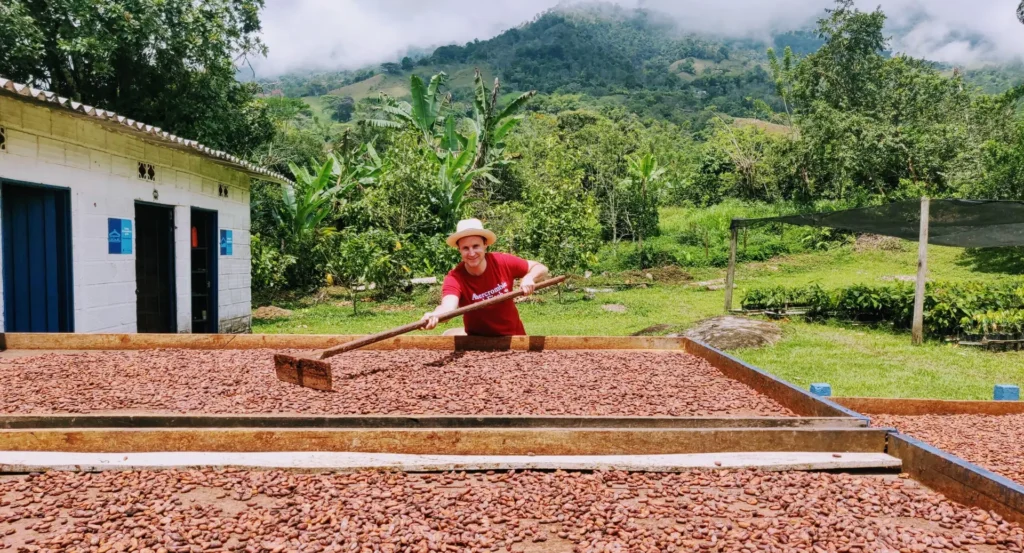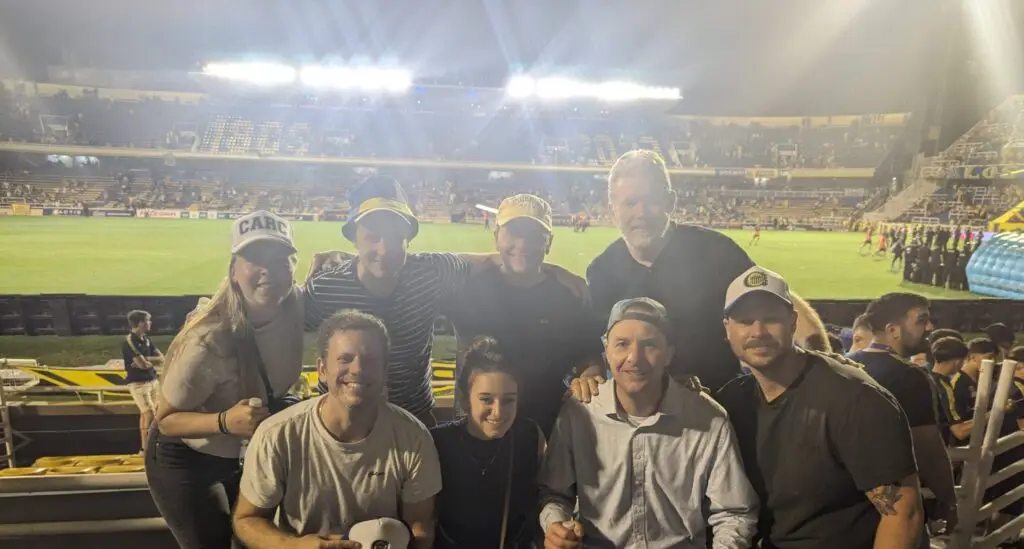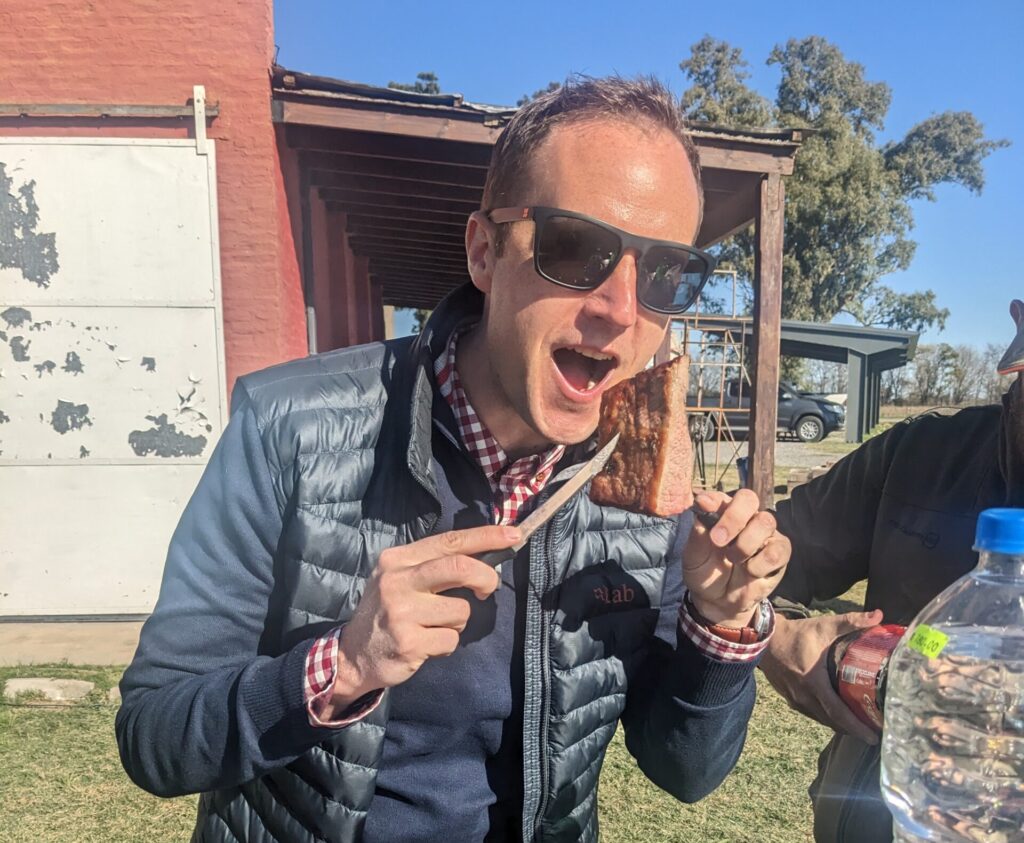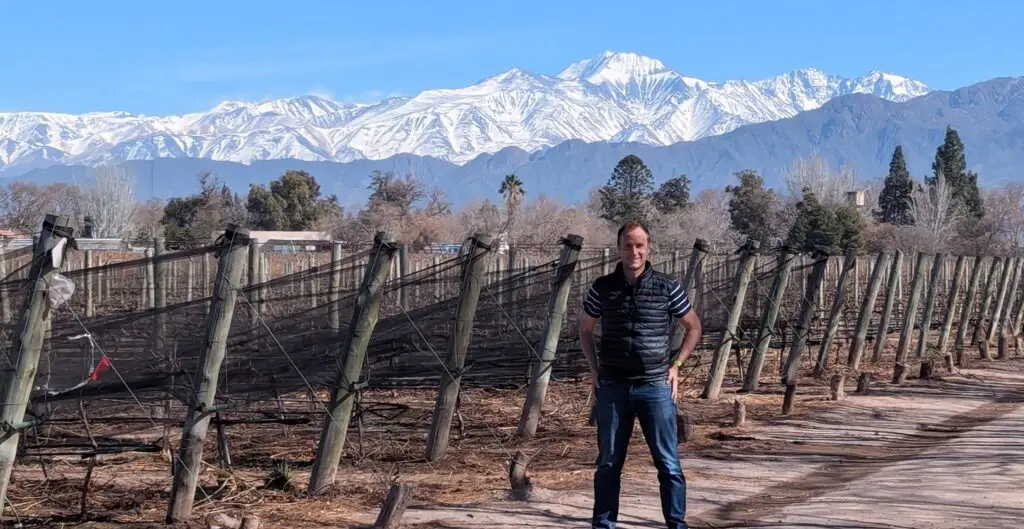By Mark Jarman
On a recent trip home to the UK from my new home in Colombia, a friend commented on how “Latino” I had become. It took me by surprise but also made me reflect on my journey, both professional and personal.
I want to share my experience as a way to inspire you and impart some of my first-hand knowledge that could make or break your foray into new markets. Or maybe it will inspire you to take the plunge in whatever decision you have been putting off.

August 2022. Urabá, Colombia. I am on one of Colombia’s largest chocolate company’s farm, where a team of pilots is flying a drone over cacao farming plots while farm workers watch from the early morning shade, drinking coffee, eating arepas (Colombian corn cakes), and debating the latest results from the Selección (Colombia’s national football team). It is a perfect illustration of how blending agritech with the rhythms of local life is what drives innovation in Colombia and Latin America in general. As a certain Danny Rojas might say, “Football is life.” Here, it is also business, community, and culture rolled into one.
It’s this blend that has defined the past decade of my life connecting UK agritech exports to Latin America’s agrifood sector and making sure technology fits not just the market but the people who will use it. Through my consultancy, AgriTIERRA, I work with smallholders in the Andes and Central America to large-scale agribusinesses in Brazil and Argentina, helping companies, governments, and research organisations turn ideas into practical, lasting impact in sustainable agriculture in Latin America.
I started my career in the UK where I was an early pioneer in utilising data from satellites, drones and IoT to improve agricultural productivity and sustainability for farming. Using these tools to bridge the gap between cutting-edge research and practical applications, it was exciting and data-rich, but still far from the fields and agricultural supply chains where change really happens.
My first visit to Colombia was in 2015, assessing the opportunities for satellite information in rice production and I kept finding reasons to return. Over the next few years I made 13 trips for projects, conferences, and workshops. The decision to relocate was driven by both personal and professional motivations. The fortune to be with the woman who is now my wife and the challenge and excitement of working in a completely different culture and geography were both massive incentives. Before committing, I contacted seven organisations to explore opportunities; five responded with offers of contracts. That gave me both the confidence to take the plunge and make the move.
Before I arrived, I set up AgriTIERRA so that I could start delivering projects immediately. The goal was to connect UK expertise with agrifood technology in LATAM, ensuring innovation was grounded in local realities from day one.

Living in Colombia means agriculture is part of daily life. I have many friends connected to farming around the region. In Bogotá’s coffee shops, I often overhear owners discussing the status of coffee production, or meet individuals to discuss opportunities for Colombia’s bioeconomy and the use of new natural ingredients or super foods.
I have visited regions where the biodiversity is so rich that you could eat a different fruit every day for three and a half years. And I have seen how quickly the climate affects production. If Bogotá has an unusual stretch of hot weather, it is often a sign that other parts of the country are already feeling the strain.
Relationships are at the heart of doing business in Latin America’s agrifood sector. Trust comes first, contracts second. Entrepreneurs here move fast to market because they rarely have the luxury of long R&D cycles. The most successful projects adapt to local workflows, involve local leaders early, and communicate value in a way that resonates culturally.
Since moving, I have created opportunities for more than 25 people across multiple countries. Creating these opportunities has been one of the most rewarding parts of my work.
I have had collaborations built over shared breakfasts, or while standing in the stadium of a local football match. In Argentina, an invitation to share mate has turned into a multi-year partnership and friendship.
In Colombia, being embedded in the community gave me the credibility to help Trade in Space secure project partnerships with Colombia’s National Coffee Federation and largest chocolate company for their Digitrak traceability application.
My background in remote sensing agriculture and GIS allows me to help companies bring solutions to market for use at the local to continental scale. At the Satellite Applications Catapult, I worked on challenges including deforestation, connectivity gaps, climate impacts, and policy alignment. That experience shaped projects like our Brazil initiative focused on soy supply chains, regenerative agriculture in LATAM, and forest retention.
The advantage comes from combining technical expertise with market understanding. Speaking the language of both developers and CEOs is the key to designing solutions that are commercially viable for providers and practical for users.

Too many UK and European companies still arrive with outdated perceptions about Latin America. Colombia for one is often painted in media as being all about coffee and one other substance. Many believe Latin America to be one homogenous “jungle” market. In reality, it’s more than 20 countries with distinct agricultural value chains, climates, regulations, and business cultures. Brazil alone is 35 times larger than the UK.
Foreign solutions can arrive over-engineered and overpriced, while local start-ups tend to be leaner and more commercially focused. Some sectors trail UK and European standards, creating opportunities for genuine collaboration and value exchange.
Technology works best when it builds on what already exists. That means starting with local systems, adapting technology to fit, and building capacity before scaling. It also means pricing appropriately and ensuring tools are in Spanish or Portuguese.
Local knowledge is an asset, not an obstacle. A farmer who has walked their land for 40 years can offer insights as accurate as any dataset. The real opportunity lies in combining those insights with agri-tech innovation from the UK to create adaptable, resilient, and culturally aware deployment strategies.
Being based in Colombia means I can quickly reach projects from Mexico, to Peru, to Brazil and Argentina. also knowing and being able to communicate in Spanish, while now learning and understanding Portuguese. It’s a vantage point that allows me to act as a bridge, translating not just language, but expectations, timelines, and approaches.
For UK/EU companies, Latin America represents vast opportunity in biodiversity, Agri-tech, regenerative agriculture, and sustainable supply chains. But it’s not a plug-and-play market. Without local grounding, many projects falter not for lack of technology, but for lack of trust.

Over the next three to five years, I see AgriTIERRA strengthening its role as a trusted bridge in climate resilience, bioeconomy in Latin America, digital agritech, and sustainable supply chains in agriculture. We will continue delivering high-impact projects such as the Brazil JFF initiative and Rural Connected Colombia, while working closely with the UK Government and a network of specialist associates.
Our goal is to help start-ups here and in the UK to grow and succeed locally and internationally, navigating complexity, building trust, and accelerating opportunities that create real value, whether through a new traceability platform, a regenerative farming initiative, or a supply chain transformation.
The most important part of that future will always be the humanware, not just the hardware or software.
If you want to succeed here, be present and consistent. Visit two or three times a year. Build relationships before expecting results. Listen before you pitch, adapt to local realities, and remember that here, business moves to the rhythm of the seasons.
The opportunity is enormous. The best results come when you connect technology, people, and place in equal measure.
Take a look at AgriTIERRA’s case studies in Digital & Agri-Tech, Sustainable Supply Chains, Nature & Biodiversity and Bioeconomy to learn more.
If you are looking to bring agricultural innovation to Latin America, or from Latin America to the world, let’s talk. I can’t promise perfect coffee everywhere, but I can promise you a partner who understands both the data and the dance.
Subscribe to get the latest posts sent to your email.
© 2025 Privacy — Terms
Subscribe now to keep reading and get access to the full archive.
